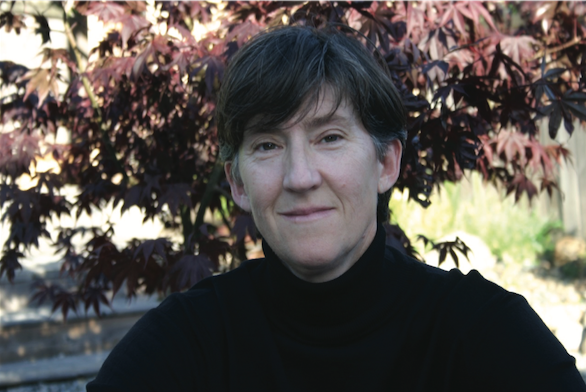A trauma shared
Former Vancouver police detective Lori Shenher literally wrote the book on the infamous missing and murdered women investigation. That Lonely Section of Hell: The Botched Investigation of a Serial Killer Who Almost Got Away tells about the first assignment in 1998 to explore an increase in the number of missing women to the harrowing 2002 interrogation of convicted serial killer Robert Pickton. It also is the story of a years-long struggle with post-traumatic stress disorder from that work.
By Lori Shenher
I watch as the National Inquiry into Missing and Murdered Indigenous Women and Girls marches along in these early months of 2016, conducting preliminary interviews in a design phase that I hope leads to actionable recommendations and lasting change.
Families and activists watch, cautiously optimistic that finally, their voices will be heard, future lives will be saved, and their loved ones will be avenged and granted the kind of respect in death they never received in life. It’s a complicated hope.
While it’s hard to recall a more earnest commitment to national change, that hope is bound up in lifetimes of disappointment, degradation and dismissal. It’s hard to keep standing up when you’ve been knocked down so many times. It’s hard not to feel skeptical; I feel it, too, and fight to keep that doubt at bay.
The Women’s Memorial March Committee began 26 years ago in response to a 1991 murder on Powell Street of a young Indigenous woman. Every year, I have wanted to join in and walk, not with the police who come out in a show of support that sadly only extends this one day a year, but rarely into department-wide policies or attitudes that protect women. They are not my people. The women and their allies who hold tight to hope are.
As I write this, I still don’t know if I will attend this year. I fear my presence would trigger some, raise mistrust in others, and shake my still-unsteady PTSD recovery from working as a detective on Vancouver’s missing women file in the late 1990s and early 2000s.
I have never wanted to show up and be someone who needed the marchers’ support when I only wish to offer mine. I don’t want to mingle with the police. And so, I have stayed away.
Vancouver’s downtown Eastside is in dire need of change. It’s been years since I worked there, but whenever I walk through, I’m deeply saddened by the hungry, cold, addicted, injured, desperate people in alleys and on the streets needing a kind word, a meal, addictions and trauma treatment, help leaving sex work, a safe place to stay, connection, with family.
Conditions now are much worse than I remember them. Friends tell me so many other places across this country are suffering from the same issues as hopelessness fuels a suicide epidemic among young people.
It will take a seismic shift in attitudes – through the work of this Inquiry and beyond – from all Canadians in terms of how we respect Indigenous people and what we do to ensure they are safe from violent, racist, misogynous predators in future.
I have to carry hope that this can be achieved.
Lori Shenher worked as a City of Vancouver police officer for over 24 years and is now pursuing a Master’s Degree in professional communications. Lori holds a Bachelor’s Degree in English literature from the University of Calgary.




